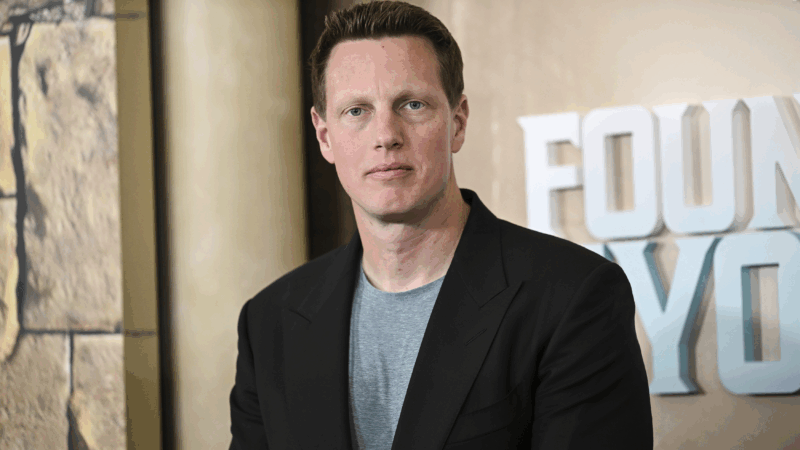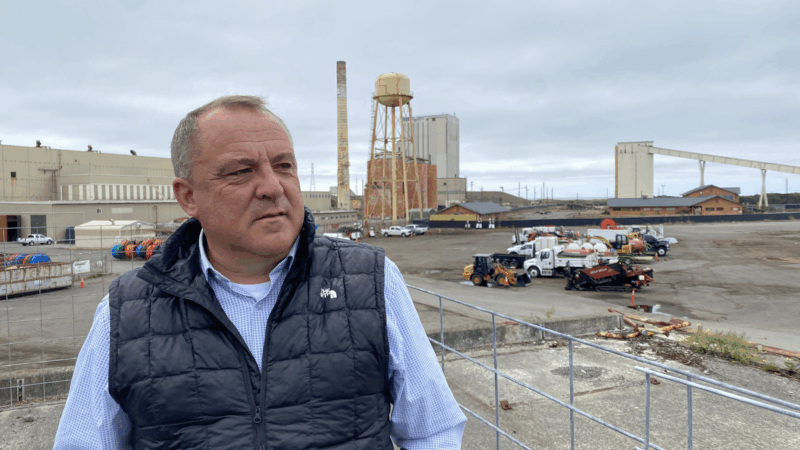She wanted to be a mom. So she chose a cancer treatment that gave her a chance
Even as a child, Maggie Loucks believed being a mom was her destiny.
“It was always inherently who I was,” says Loucks, of her tendency to take care of others. “Friends always turned to me and would always joke that I was the mom of the group.”
So when Loucks got a breast cancer diagnosis at age 28, her thoughts immediately ran to the kids she’d always wanted.
“After the initial shock of the diagnosis, that was the most present thing on my mind,” says Loucks, who was a newly married nursing student in Boston at the time.
The thought of not having her own biological children with her husband gutted her.
“And that was really almost harder than the treatment for breast cancer,” she says.
The type of cancer Loucks had, known as HER2-positive, is increasing at alarming rates among young women. This cancer is sensitive to hormones, and tends to spread quickly. Loucks was told that in the past, treatments had to match the cancer in harshness, and the toxins damaged ovaries and other organs in the process.
Loucks, who became an oncology nurse practitioner, refers to this as the “kitchen sink” approach: “You throw the kitchen sink at them; you give them every type of chemotherapy because you do not want this coming back.”
Less collateral damage
But treatments are rapidly changing. Medical breakthroughs, and genetics in particular, are enabling new drugs to better target specific subtypes of cancers, which not only dramatically increases chances of survival, it spares the body a lot of collateral damage. That, in turn, means some patients can choose how to address their cancer in ways that take into account their emotional and physical quality of life, after treatment.
Medicines that improve the quality of life in survivorship are the new frontier in treating cancer, says Dr. Ann Partridge, acting chair of oncology at Dana-Farber Cancer Institute and Maggie Loucks’s oncologist.
“We need to do more to improve those psychosocial outcomes and not only survive their cancer, but thrive after,” she says.
For nearly half of Partridge’s young adult patients, that includes trying to preserve fertility. Her research shows many women could treat their breast cancer for roughly two years — then pause to get pregnant — and resume treatment after giving birth without additional risk of cancer recurrence.
“Not only was that feasible and the vast majority of women were able to get pregnant and have a live birth, but it also appeared safe,” she says.

Partridge offered Loucks another alternative — a chemotherapy regimen that’s less aggressive in killing cancer cells and does less damage to ovaries, potentially preserving fertility. Loucks chose that route and harvested her eggs before treatment for good measure.
“I went into my chemotherapy with 15 embryos and I was so excited – elated,” she says.
Still, a fertility struggle
After five and a half years of treatment, Loucks and her husband finally began transferring their frozen embryos. One by one, they perished or failed to implant. Several times Loucks miscarried. Meanwhile, her friends were having babies, and she began to despair: “I was utterly devastated. So traumatizing. It was years and years of heartache and sadness.”
Because her ovaries remained healthy, Loucks was able to harvest more eggs. After two years of in-vitro fertilization, Loucks gave birth to twin daughters, Sloane and Everly. Two years after that, she conceived another girl, Kingsley, naturally.
“I don’t know if I would’ve gotten the same result, if I’d gotten the other chemotherapy,” says Loucks, now 40 and living in London with her family. She remains cancer free, and worries less about recurrence as time goes on.

Yet occasionally she wonders about her choice to take the less aggressive chemotherapy: “Am I going to regret this? What if my cancer comes back and I made the wrong choice? Now that I have kids, I have a different kind of fear. I want to be around for as long as possible.”
Gratitude and perspective
But not a day goes by that she doesn’t appreciate her past struggle, she says. She put her experiences to good use professionally when she worked with her former doctor, Ann Partridge, helping other women deal with fertility through cancer. And it has had a profound effect emotionally.
“Understanding and realizing how precious life can be is one beautiful thing from my cancer diagnosis that I’ve tried to hold onto,” says Loucks.
Katie Hayes Luke edited the visuals for this story.
Not so fast, Netflix. Paramount launches hostile bid for Warner Bros. Discovery
Paramount has launched a hostile bid for the company that's home to Casablanca, Batman and CNN. Just Friday, Netflix and Warner Brothers executives were celebrating a deal they had struck.
China’s trade surplus hits $1 trillion for first time ever
China's exports to the U.S. have dropped sharply this year, in the face of President Trump's tariffs — but the country is still finding plenty of customers elsewhere around the world.
ICEBlock app sues Trump administration for censorship and ‘unlawful threats’
The app lets people anonymously share the locations of immigration agents but Apple removed it from its app store under pressure from the Trump administration. Now, the app's developer is suing.
Here are the 2026 Golden Globe nominations
Marlon Wayans and Skye P. Marshall presented the nominees for the 83rd Golden Globes this morning. The awards ceremony will be held on Jan. 11, hosted by Nikki Glaser.
After Texas ruling, Trump and Republicans head to 2026 with a redistricting edge
Trump has prompted a redistricting race as he tries to maintain Republican control of the House in the 2026 elections. Democrats have fewer options to counter, as the battle heads into next year.
How China, not the U.S., became the main climate solution story in 2025
The U.S. has become a "side character" in the global story of renewable energy, experts say. China dominates the sector, with positive implications for the climate and their economy.






